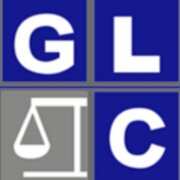Best Collaborative Law Lawyers in Doha
Share your needs with us, get contacted by law firms.
Free. Takes 2 min.
Free Guide to Hiring a Family Lawyer
List of the best lawyers in Doha, Qatar
About Collaborative Law in Doha, Qatar:
Collaborative Law in Doha, Qatar is a legal process that allows individuals to resolve their disputes amicably without going to court. It involves a team approach where both parties and their lawyers work together to find mutually beneficial solutions. The process is confidential and focuses on reaching a fair agreement that meets the needs of all parties involved.
Why You May Need a Lawyer:
You may need a lawyer in Collaborative Law situations if you are facing a divorce, child custody issues, property disputes, or any other family-related legal matters. A lawyer can provide guidance, advice, and representation throughout the collaborative process to ensure your rights are protected and that you reach a satisfactory resolution.
Local Laws Overview:
Key aspects of local laws in Doha, Qatar that are relevant to Collaborative Law include the Family Law and Civil Law. These laws govern family-related matters and provide guidelines for resolving disputes through collaborative means. It is important to abide by these laws and work within their frameworks when engaging in Collaborative Law processes.
Frequently Asked Questions:
1. What is the role of a lawyer in Collaborative Law?
A lawyer in Collaborative Law serves as a legal advisor and advocate for their client, helping them navigate the collaborative process and ensure their interests are represented.
2. How is Collaborative Law different from mediation?
Collaborative Law involves a team approach with lawyers representing each party, while mediation typically involves a neutral third party mediator assisting in negotiations.
3. Can Collaborative Law be used for all types of legal disputes?
Collaborative Law is commonly used for family-related matters such as divorce, child custody, and property disputes, but it can also be applied to other civil disputes.
4. How long does a Collaborative Law process typically take?
The duration of a Collaborative Law process varies depending on the complexity of the issues involved and the willingness of both parties to cooperate. It can range from a few months to over a year.
5. What are the advantages of using Collaborative Law?
Some advantages of Collaborative Law include confidentiality, control over the outcome, cost-effectiveness, and the ability to maintain a cooperative relationship with the other party.
6. What happens if the Collaborative Law process is unsuccessful?
If the Collaborative Law process is unsuccessful, the parties will need to seek alternative dispute resolution methods or pursue litigation in court.
7. Is the agreement reached in Collaborative Law legally binding?
Yes, the agreement reached in Collaborative Law is legally binding once it is signed by both parties and approved by the court.
8. Can I use the same lawyer for Collaborative Law and litigation?
Typically, a lawyer who represents you in a Collaborative Law process cannot represent you in litigation if the process is unsuccessful. It is best to seek separate legal representation for each stage.
9. How can I find a Collaborative Law lawyer in Doha, Qatar?
You can search for Collaborative Law lawyers in Doha, Qatar through legal directories, bar associations, and referrals from friends or family members. It is important to choose a lawyer who is experienced in Collaborative Law and practices in your area.
10. What are the costs associated with Collaborative Law?
The costs of Collaborative Law can vary depending on the complexity of the case, the number of meetings, and the fees charged by the lawyers involved. It is important to discuss fees and payment arrangements with your lawyer before starting the process.
Additional Resources:
For additional resources related to Collaborative Law in Doha, Qatar, you can contact the Qatar International Court and Dispute Resolution Centre (QICDRC) or the Qatar International Law Firm. These organizations can provide information, guidance, and referrals to legal professionals specializing in Collaborative Law.
Next Steps:
If you are in need of legal assistance in Collaborative Law in Doha, Qatar, the next step is to schedule a consultation with a qualified lawyer who can assess your situation and provide guidance on the collaborative process. It is important to be prepared, open to compromise, and willing to work towards a mutually beneficial resolution with the other party. Remember that Collaborative Law offers a respectful and constructive way to resolve disputes without the need for costly and time-consuming litigation.
Lawzana helps you find the best lawyers and law firms in Doha through a curated and pre-screened list of qualified legal professionals. Our platform offers rankings and detailed profiles of attorneys and law firms, allowing you to compare based on practice areas, including Collaborative Law, experience, and client feedback.
Each profile includes a description of the firm's areas of practice, client reviews, team members and partners, year of establishment, spoken languages, office locations, contact information, social media presence, and any published articles or resources. Most firms on our platform speak English and are experienced in both local and international legal matters.
Get a quote from top-rated law firms in Doha, Qatar — quickly, securely, and without unnecessary hassle.
Disclaimer:
The information provided on this page is for general informational purposes only and does not constitute legal advice. While we strive to ensure the accuracy and relevance of the content, legal information may change over time, and interpretations of the law can vary. You should always consult with a qualified legal professional for advice specific to your situation.
We disclaim all liability for actions taken or not taken based on the content of this page. If you believe any information is incorrect or outdated, please contact us, and we will review and update it where appropriate.













